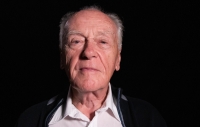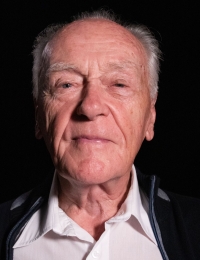After the war I kept crossing the border illegally, under the Iron Curtain I guarded it as a German border patrolman

Stáhnout obrázek
Robert Böhm was born on 26 February 1932 in Nýrsko (Neuern in German), to the family of architect Robert Böhm, who among other things designed the – still standing – memorial to the First World War. In 1937 Konrad Henlein visited Nýrsko and was greeted by the citizens of the town. Little Robert recited a poem to him. In September 1938 Robert was enrolled in the first class of Czech primary school, a few weeks later the portrait of the Czechoslovak president was replaced with a photograph of Hitler – as a result of the Munich Agreement. At the age of ten, Robert joined the Jungvolk organisation, later on the Flying Hitlerjugend, where he participated in war games and camps. In the last few weeks of the war, Robert had a first-hand view of a procession of impoverished concentration camp prisoners through Nýrsko. As the front lines approached, Nýrsko came under bombardment, costing the lives of forty local inhabitants. It was only after the war that the citizens of Nýrsko found out about the executions of prisoners from concentration camps at the local train station, when the German citizens of the towns were made to dig up, wash and properly bury those executed. Once arrests of Nýrsko Germans began and Robert’s father decided to flee to Germany, the thirteen-year-old accompanied him to the border and later illegally smuggled him letters and messages to Bavaria. When Robert’s mother died of a cardiovascular disease in September 1945 and Czechs moved into their house, Robert headed out alone to join his father in Germany. In the following months he crossed the border repeatedly, carrying small household items into Germany, eventually smuggling over his six-year-old sister. He continued his border crossings until the construction of the Iron Curtain, mainly gathering mushrooms and blueberries, but also keeping in contact with smugglers of goods and people. The one-time grammar school student eventually trained as a baker in Germany, but did not make use of his training. His years of childhood experience were useful when he joined the German border patrol, among other things he guarded the Czech-German border under the Iron Curtain. He was only able to visit Nýrsko, the town of his birth, in June 1989, when he was also introduced to the post-revolutionary local politician Ivan Bečvář, who remained his friend until death. They did not reproach each other for the events of the war or its aftermath. They agreed: “We were both still just children”.

